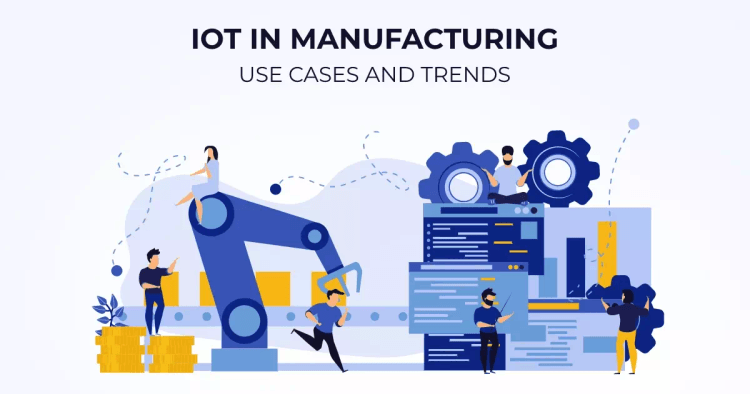IoT in Manufacturing: 4 Use Cases of How is IoT Used in Manufacturing from Mentina Slevska's blog
The Internet of Things (IoT) is revolutionizing various industries, and manufacturing is no exception. As highlighted by Euristiq, the integration of IoT in manufacturing processes is transforming how businesses operate. By connecting machines, devices, and systems, manufacturers can streamline operations, enhance productivity, and reduce costs. In this article, we’ll explore four significant use cases of IoT in manufacturing that illustrate its profound impact on the industry https://euristiq.com/iot-in-manufacturing/.
One of the most promising applications of IoT in manufacturing is predictive maintenance. Traditional maintenance practices often rely on scheduled downtime, which can be both inefficient and costly. IoT technology enables manufacturers to monitor equipment performance in real time, collecting data on machine usage, temperature, vibrations, and more.
By analyzing this data, manufacturers can predict when a machine is likely to fail and schedule maintenance before issues arise. This proactive approach not only minimizes unplanned downtime but also extends the lifespan of equipment. Companies can significantly reduce maintenance costs and improve operational efficiency through predictive maintenance strategies.
2. Smart Supply Chain ManagementIoT plays a crucial role in enhancing supply chain management in manufacturing. By implementing IoT sensors and devices, manufacturers can gain real-time visibility into their supply chain operations. This visibility allows companies to track inventory levels, monitor shipments, and optimize logistics.
For example, IoT devices can provide data on the location and condition of goods during transit, ensuring that products are delivered on time and in optimal condition. Moreover, with accurate inventory tracking, manufacturers can avoid stockouts and overstock situations, leading to more efficient inventory management. By utilizing IoT for supply chain management, manufacturers can reduce costs and improve customer satisfaction.
3. Enhanced Quality ControlQuality control is paramount in manufacturing, and IoT technologies are making it more efficient and effective. IoT devices can monitor production processes in real time, collecting data on various parameters such as temperature, pressure, and humidity.
By analyzing this data, manufacturers can quickly identify deviations from quality standards and implement corrective actions. For instance, if a sensor detects that a machine is operating outside its optimal range, the system can automatically alert operators to make adjustments. This real-time quality control not only reduces defects but also ensures that products meet regulatory standards. As a result, manufacturers can enhance product quality while minimizing waste.
4. Workforce Safety and ManagementThe safety and well-being of workers in manufacturing environments are of utmost importance. IoT technologies contribute significantly to improving workplace safety. Wearable IoT devices can monitor workers' vital signs, movements, and exposure to hazardous conditions.
For instance, if a worker is exposed to high levels of toxic substances or experiences fatigue, the system can alert supervisors and initiate safety protocols. Furthermore, IoT solutions can optimize workforce management by providing data on employee performance and productivity. This information can help managers identify areas for improvement and enhance overall workforce efficiency.

The implementation of IoT in manufacturing is transforming the industry by enhancing operational efficiency, reducing costs, and improving product quality. From predictive maintenance to smart supply chain management, the use cases of IoT are diverse and impactful. As manufacturers continue to embrace IoT technologies, they will unlock new opportunities for innovation and growth. By leveraging the insights provided by IoT, businesses can stay competitive in an increasingly digital and interconnected world.In summary, the integration of IoT in manufacturing processes is not just a trend; it is a strategic move that can lead to substantial improvements in productivity and profitability. Manufacturers that harness the power of IoT will be better positioned to meet the challenges of the future.

The Wall